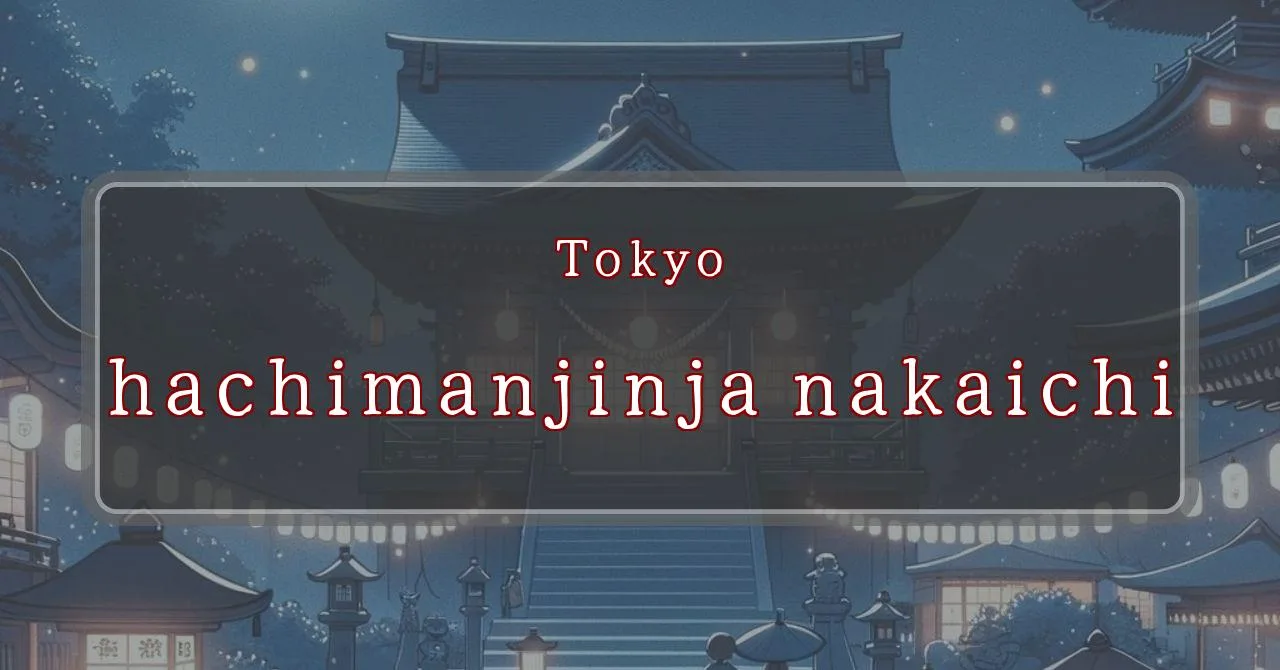Enchanting shrine festival with a millenary history
Basic Information
八幡神社 is a Shinto shrine located in the city of Fuchu, Tokyo, Japan. It is dedicated to the god Hachiman, the god of war and guardian deity of warriors.
- Address: 1-1-1 Wakamatsucho, Fuchu-shi, Tokyo
- Phone Number: 042-361-2233
- Access: 10-minute walk from JR Musashino Line Fuchu-Hommachi Station
- Festival Days: September 15th, 2024
Main Events and Attractions of the Festival
The Hachiman Shrine Chushi Festival is a grand festival held annually on September 15th. It is known for its lively atmosphere and various events that attract many visitors.
Mikoshi Procession
The highlight of the festival is the Mikoshi Procession, where a portable shrine called Mikoshi is carried through the streets of the city. The Mikoshi is believed to house the spirit of the Hachiman deity, and it is carried by teams of people who chant and dance to traditional music.
- Overview: A procession of a portable shrine called Mikoshi through the city streets
- Significance: The Mikoshi is believed to house the spirit of the Hachiman deity
- Experience: Lively atmosphere with people chanting and dancing to traditional music
Shishimai Dance
Another popular attraction of the festival is the Shishimai Dance. This traditional dance is performed by a dancer wearing a lion costume. The lion is believed to bring good luck and ward off evil spirits, and its energetic dance is a crowd-pleaser.
- Overview: A traditional dance performed by a dancer wearing a lion costume
- Significance: The lion is believed to bring good luck and ward off evil spirits
- Experience: Energetic and entertaining dance that captivates the audience
Yatai Village
During the festival, a Yatai Village is set up in the shrine grounds. Yatai are food stalls that sell a variety of traditional Japanese snacks and drinks. Visitors can enjoy delicious treats while soaking up the festive atmosphere.
- Overview: A collection of food stalls selling traditional Japanese snacks and drinks
- Variety: Wide selection of food and drinks to choose from
- Experience: A great opportunity to try different Japanese culinary delights
Blessings and Deities
The Hachiman Shrine is dedicated to the deity Hachiman, the god of war and guardian deity of warriors. Hachiman is revered for his bravery, strength, and protection, and is often worshipped by samurai and warriors throughout Japanese history.
- Deity: Hachiman, the god of war and guardian deity of warriors
- Significance: Hachiman is revered for his bravery, strength, and protection
- Worship: Hachiman is often worshipped by samurai and warriors throughout Japanese history
Origin and History
The Hachiman Shrine has a long and storied history, dating back to the Heian period (794-1185). It is believed to have been founded by Minamoto no Yoritomo, the first shogun of the Kamakura shogunate, in 1180. The shrine was initially dedicated to Hachiman, the god of war, and was revered by samurai and warriors for protection in battle.
- Founder: Minamoto no Yoritomo, the first shogun of the Kamakura shogunate
- Date of Foundation: 1180
- Initial Dedication: Hachiman, the god of war
- Significance: Revered by samurai and warriors for protection in battle
Tips and Notes for Visitors
If you plan to visit the Hachiman Shrine during the festival, here are some tips and notes to keep in mind:
- Hours of Operation: The shrine is open from 9:00 AM to 5:00 PM.
- Admission Fee: There is no admission fee to enter the shrine.
- Dress Code: Visitors are expected to dress respectfully when visiting the shrine. Avoid wearing shorts, tank tops, or other casual clothing.
- Photography: Photography is allowed within the shrine grounds, but please be respectful of other visitors and avoid taking pictures of people without their permission.
- Parking: There is limited parking available at the shrine. It is recommended to use public transportation or park in a nearby parking lot and walk to the shrine.
Parking Information
There are several parking lots near the Hachiman Shrine. Here are some options:
- Hachiman Shrine Parking Lot (located next to the shrine): 300 yen per hour
- Wakamatsucho Parking Lot (5-minute walk from the shrine): 200 yen per hour
- Fuchu-Hommachi Parking Lot (10-minute walk from the shrine): 150 yen per hour
Popular Stalls and Food Carts in Recent Years
| Type of Stall | Description |
|---|---|
| Takoyaki | A staple at Japanese festivals. Characterized by a crispy outside and a creamy inside. |
| Jaga Butter | A simple yet popular snack of hot potatoes lavishly topped with melted butter. |
| Baby Castella | Small castella cakes, sweet and fluffy treats enjoyed by children and adults alike. |
| Grilled Ayu with Salt | Fresh ayu fish grilled whole with salt, a savory taste of Japanese summer. |
| Shaapin | A unique gourmet item influenced by foreign cuisine, with a chewy skin wrapping the filling. |
| Okonomiyaki | A Japanese grilled dish where you often choose your own ingredients for a personalized flavor. |
| Cotton Candy | A fluffy, sweet snack that’s extremely popular with children. |
| Chocolate Banana | A banana coated in chocolate, a fun and visually appealing dessert. |
| Kushiyaki | Various types of ingredients skewered and grilled, an easy-to-enjoy snack. |
| Yakisoba | Fried noodles mixed with a special sauce, a fast food favorite in Japan. |



